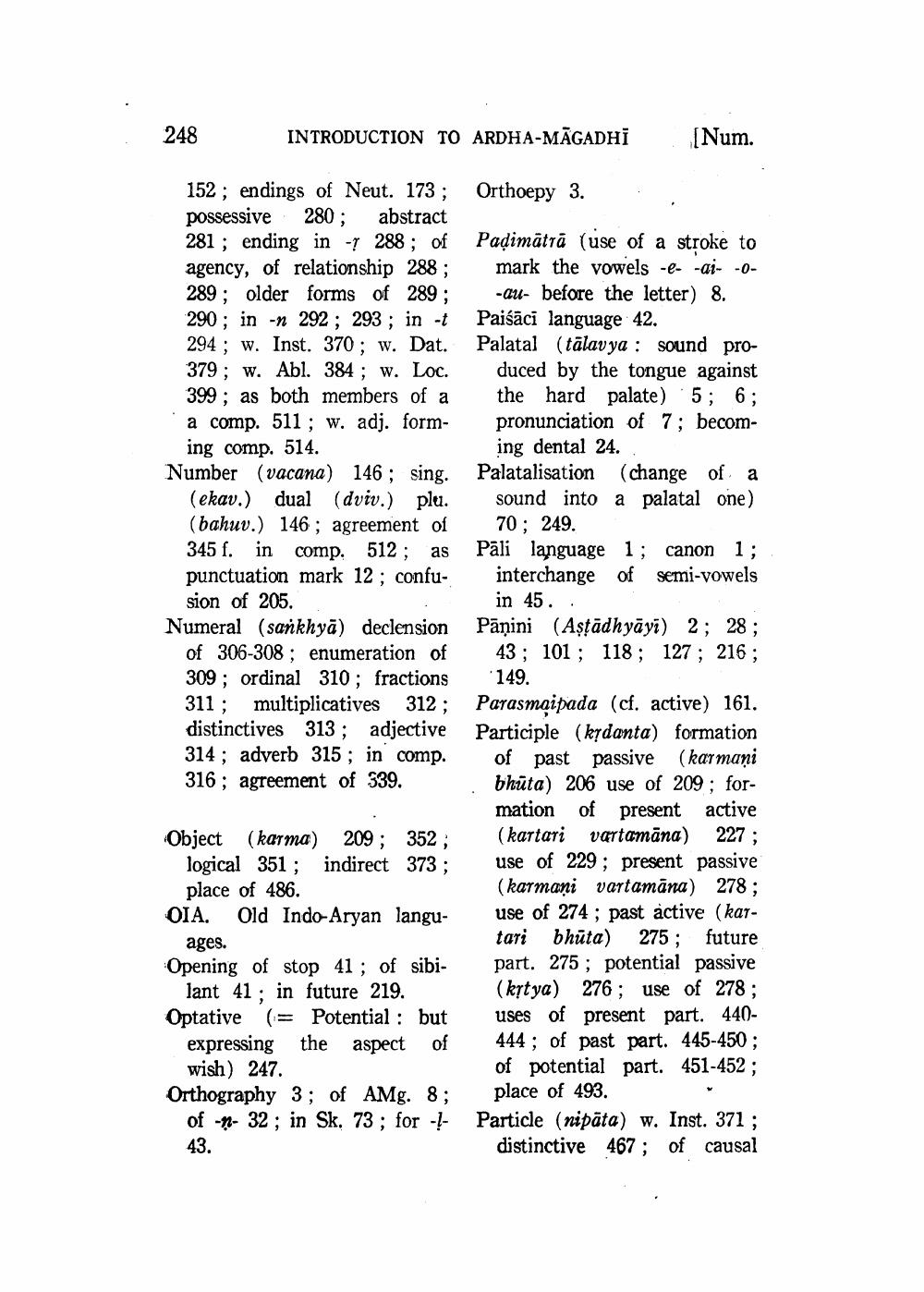________________
248
INTRODUCTION TO ARDHA-MĀGADHI
[Num.
Orthoepy 3.
.
152; endings of Neut. 173; possessive 280; abstract 281 ; ending in -? 288 ; of agency, of relationship 288; 289; older forms of 289 ; 290 ; in-n 292, 293 ; in-t 294 ; w. Inst. 370; w. Dat. 379 ; w. Abl. 384 ; w. Loc. 399; as both members of a a comp. 511 ; w. adj. form-
ing comp. 514. Number (vacana) 146 ; sing.
(ekav.) dual (dviv.) plu. (bahuv.) 146; agreement of 345 f. in comp. 512; as punctuation mark 12; confu- sion of 205.
.: Numeral (sankhyā) declension
of 306-308; enumeration of 309; ordinal 310; fractions 311 ; multiplicatives 312; distinctives 313; adjective 314 ; adverb 315; in comp. 316; agreement of 339.
Padimātrā (use of a stroke to
mark the vowels -- -ai--0
-au- before the letter) 8. Paiśāci language 42. Palatal (tālavya : sound pro
duced by the tongue against the hard palate) 5; 6; pronunciation of 7; becom
ing dental 24.. Palatalisation (change of a
sound into a palatal one)
70; 249. Pāli language 1; canon 1;
interchange of semi-vowels
in 45. Pāņini (Aştādhyāyi) 2; 28;
43; 101 ; 118; 127 ; 216 ;
149. Parasmaipada (cf. active) 161. Participle (kydanta) formation
of past passive (karmaņi bhūta) 206 use of 209; formation of present active (kartari vartamāna) 227; use of 229; present passive (karmaņi vartamāna) 278; use of 274 ; past active (kartari bhūta) 275 ; future part. 275; potential passive (krtya) 276 ; use of 278 ; uses of present part. 440444; of past part. 445-450 ; of potential part. 451-452 ;
place of 493. Particle (nipāta) w. Inst. 371 ;
distinctive 467; of causal
Object (karma) 209; 352;
logical 351; indirect 373;
place of 486. OIA. Old Indo-Aryan langu
ages. Opening of stop 41 ; of sibi
lant 41; in future 219. Optative (= Potential : but
expressing the aspect of
wish) 247. Orthography 3; of AMG. 8;
of -n- 32; in Sk. 73; for ! 43.




